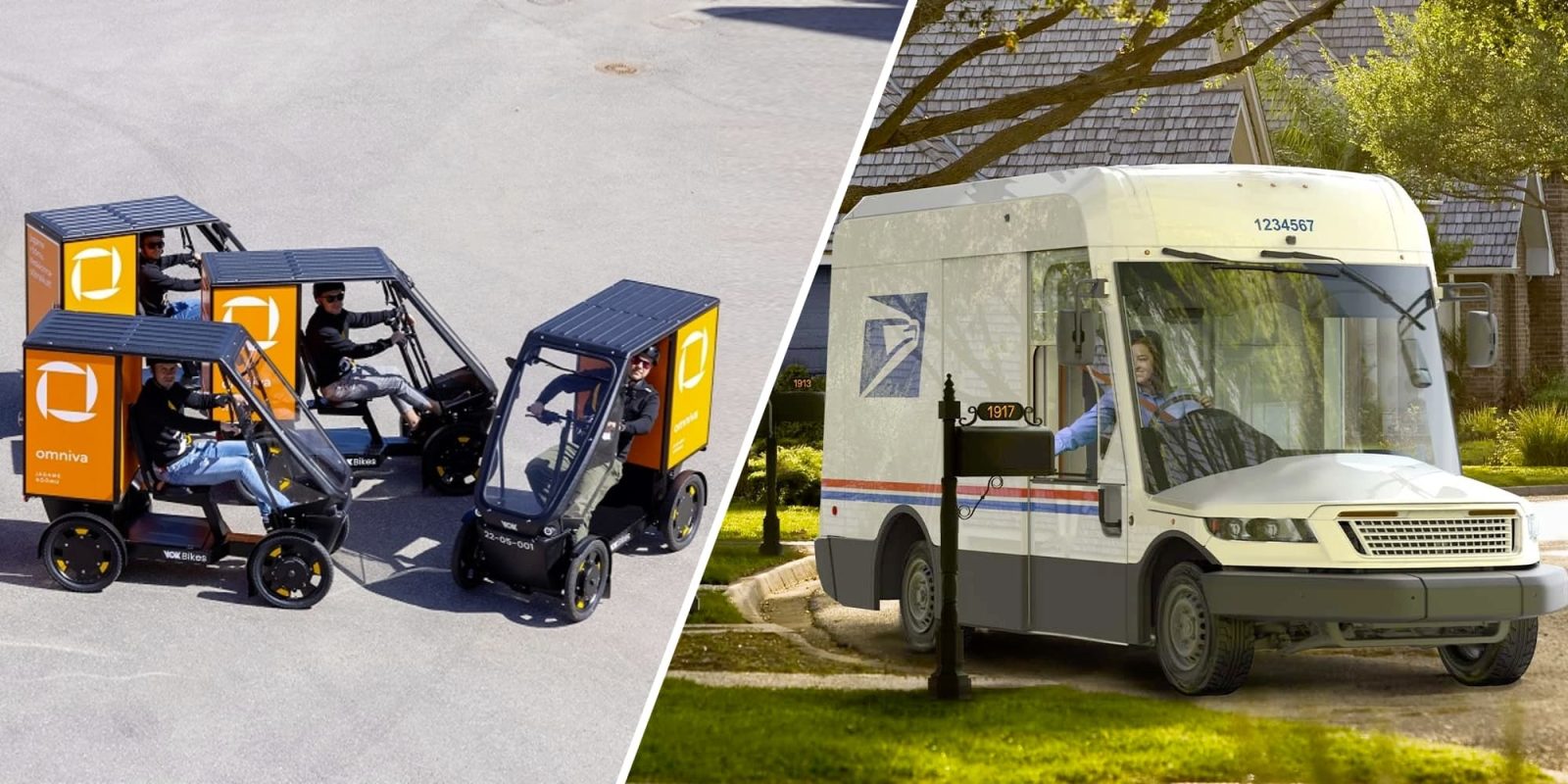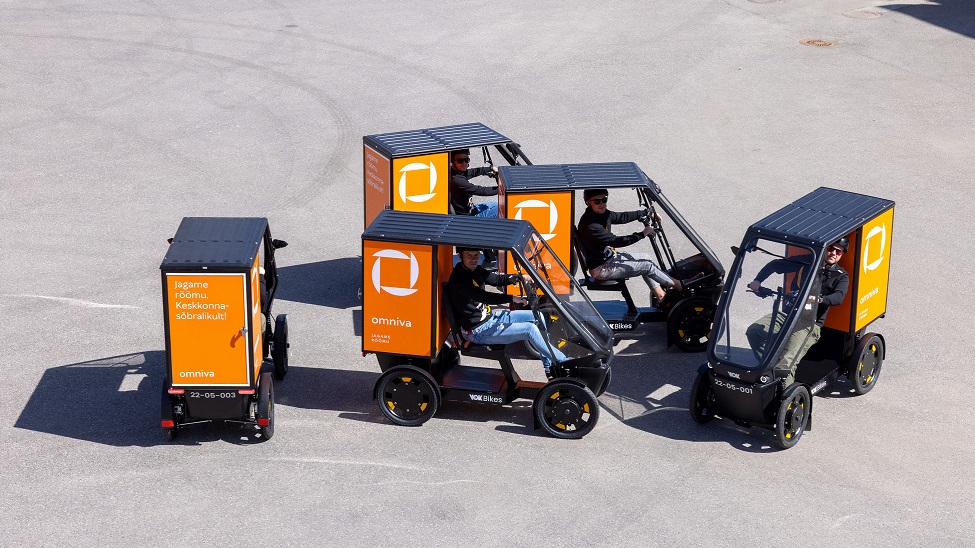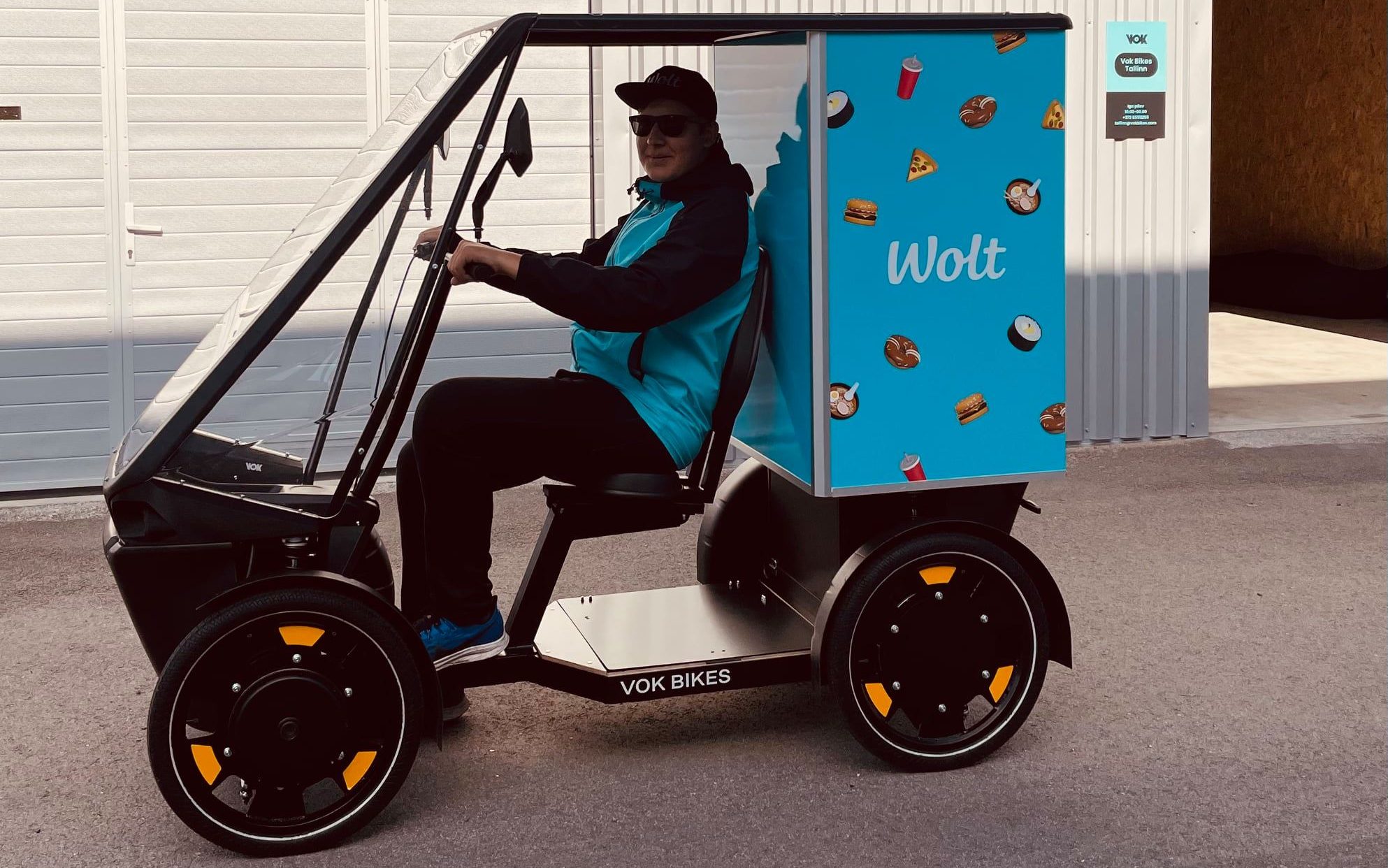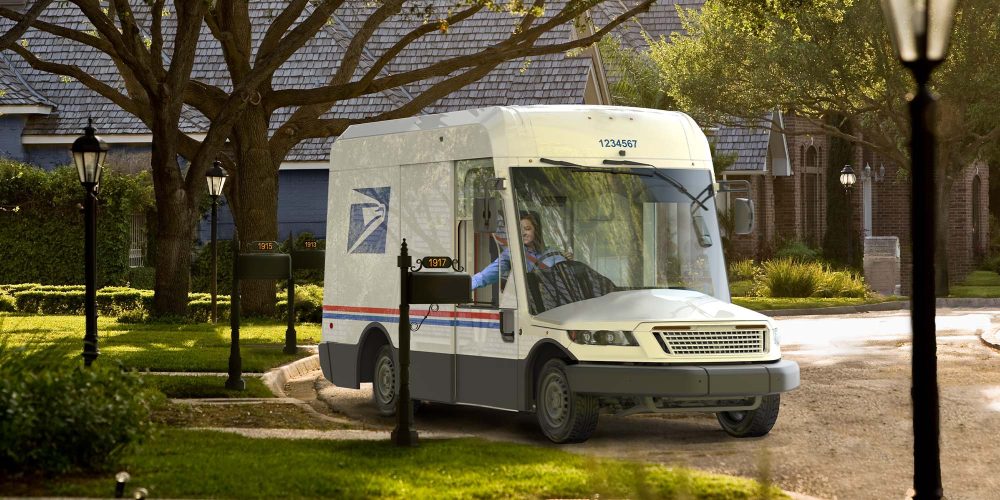
Electric cargo bikes, especially four-wheeled versions that function as mini delivery vans, are becoming an increasingly common solution for mail delivery around the world. As USPS struggles with its own delivery van ordering scandal, the latest example of alternative lightweight and efficient electric four-wheeler delivery vehicles saw yet another European country demonstrating the effectiveness of switching away from gas-powered mail trucks.
Mail truck? Why not mail bike?
Omniva, the national mail service in Estonia (and a country with its own vibrant domestic e-bike production) has recently begun expanding its electric cargo bike delivery service.
Using four-wheeled electric cargo bikes manufactured by Vok Bikes, Omniva can replace gas-guzzling mail trucks along local routes.
The small easy-to-maneuver electric cargo bikes also better facilitate mail delivery in cramped urban areas that remain difficult to access for traditional trucks.
Despite the smaller size, each battery for the electric cargo bike can operate for 100 km (62 miles) before needing to return to a depot to swap its battery.

With a top speed of 25 km/h (15.5 mph) due to European electric bike regulations, these delivery vehicles offer four hours or more of operation. Considering time stopped while performing deliveries, each e-bike could potentially work for an entire shift on a single charge.
Omniva’s Head of Logistics and Transport explained that the success of the program after a trial period has convinced the company of the need to expand it:
The initial experience of using an electric bike for providing services in a densely populated area is positive, so we decided to introduce the bikes gradually: first, in cities, but later, perhaps also in smaller cities and towns.
The advantage of using a bike in densely populated areas with a lot of traffic is the ease and convenience of access to buildings and maneuverability. Our couriers are enthusiastic about using electrical cargo bikes, so there is no shortage of willing users!
Such electric cargo bikes are now finding use all over the world as a replacement for larger delivery trucks. While many are used for package delivery, examples like the food delivery e-bike below are increasingly common.

UPS is currently trialing 100 Fernhay four-wheeled electric cargo bikes for its deliveries in crowded urban areas, and other delivery companies have also begun using various electric cargo bikes for deliveries as well.
The shift away from larger delivery and mail trucks for local routes comes at a time when the United States Postal Service (USPS) is at a crossroads for its next massive vehicle purchasing contract.
The USPS initially announced that it would be purchasing up to 165,000 mostly-gas-powered Next Generation Delivery Vehicles (NGDVs) from Oshkosh Defense Corp.
The original plan was for 10% of those vehicles to be electric, though the USPS then increased that percentage to 20% for their initial order of 50,000 vehicles. The gas-powered NGDVs will get as low as 8.6 miles per gallon (approximately 27.5L/100km) during operation.

However, several lawsuits have recently been filed against the USPS regarding the high percentage of gas-guzzling vehicles in the order.
As Electrek’s Jameson Dow recently explained:
The lawsuits filed today rehash many of the recent arguments against this decision, primarily focusing on the USPS’ failure to do timely environmental assessments. They argue that not only was the initial environmental assessment undertaken after the contract was announced, but that the assessment was deficient in considering air quality and climate impacts of the plan and did not seriously consider other alternatives to the gas guzzlers the USPS decided on.
Per the National Environmental Policy Act (NEPA), signed in 1970, federal agencies must publish environmental impact statements (EIS) before any change in policy that is likely to have an environmental impact.
But USPS’ environmental assessment has been panned as insufficient not only by all the groups filing lawsuits today, but also the White House and EPA, which sent letters criticizing the plan (which also conflicts with President Biden’s order to convert the entire federal vehicle fleet to electric). Even the USPS watchdog group, the Office of the Inspector General, stated that the agency would benefit from adopting more electric vehicles than their current plan.
While many are pushing the USPS to purchase more electric delivery trucks, could part of the solution be to avoid purchasing trucks at all?
And as electric cargo bikes become increasingly accessible – especially four-wheeled electric cargo bikes with significant hauling capacity – could these highly efficient electric vehicles be an even better solution than electric trucks and vans?
Let’s hear what you think in the comments section below!
FTC: We use income earning auto affiliate links. More.





Comments